Western Massachusetts Food Processing Center
Western Mass Food Processing Center
Franklin County CDC
Kate Minifie
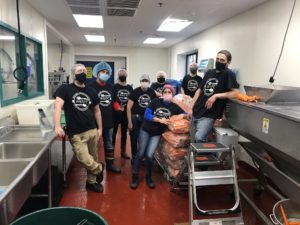 The Western Mass Food Processing Center supports farms with making value-added products, such as tomato sauce, salsas, pickles, jams, pestos and frozen products. Access to a commercial processing space helps farms manage their surplus produce and add new items to their farm stand, farm store or CSA. This harvest season we will support 10-20 local farms, making items like pickled radish, bread and butter pickles, jalapeno salsa, peach salsa, basil pesto, garlic scape pesto, frozen summer squashes and more!
The Western Mass Food Processing Center supports farms with making value-added products, such as tomato sauce, salsas, pickles, jams, pestos and frozen products. Access to a commercial processing space helps farms manage their surplus produce and add new items to their farm stand, farm store or CSA. This harvest season we will support 10-20 local farms, making items like pickled radish, bread and butter pickles, jalapeno salsa, peach salsa, basil pesto, garlic scape pesto, frozen summer squashes and more!
In addition to serving as a processing space for local farms, we also run the Valley Veggies Program. We source more than 100k pounds of fresh, local produce each harvest season, flash freeze it, and pack in bulk cases for institutions like K12 schools, hospitals, colleges and elder-care facilities. This program helps farms by serving as a new market for them to sell fresh produce and it serves institutions by helping them to extend the farm to school season into the winter and spring.
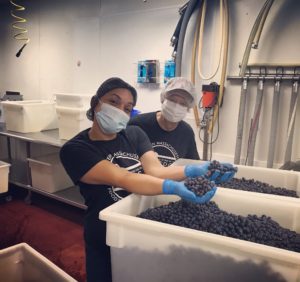 Sourcing fruits, vegetables, meats and dairy products from local and regional sources is important for so many reasons! When we spend our money on local food, we create a more resilient local food economy. This helps to create jobs, keep local businesses healthy and leads to more vibrant communities. Local food travels shorter distances to consumer’s plates and is therefore fresher, more flavorful, more nutritious and creates less pollution in our environment.
Sourcing fruits, vegetables, meats and dairy products from local and regional sources is important for so many reasons! When we spend our money on local food, we create a more resilient local food economy. This helps to create jobs, keep local businesses healthy and leads to more vibrant communities. Local food travels shorter distances to consumer’s plates and is therefore fresher, more flavorful, more nutritious and creates less pollution in our environment.
By freezing local produce soon after it’s harvested, we create an opportunity for schools to include local food on their menus during the winter and spring when fresh produce isn’t available. By lightly processing local items like butternut squash broccoli and carrots, we help schools reduce the time is take to prepare lunch or after school meals.
Boston Food Hub
The Boston Food Hub
Boston, MA
Annie Finstein Broad: Food Hub Sales Manager
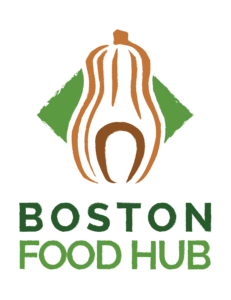 There are many different kinds of “Food Hubs”. The Boston Food Hub looks more like a traditional produce distribution company in that we have a fleet of trucks, cold storage, and sales and marketing. What makes us different is that we are a non-profit food hub.
There are many different kinds of “Food Hubs”. The Boston Food Hub looks more like a traditional produce distribution company in that we have a fleet of trucks, cold storage, and sales and marketing. What makes us different is that we are a non-profit food hub.
Who we are ties into Boston Area Gleaners which is a hunger relief organization that focuses on gleaning from farms. Gleaning a farm means harvesting crops that would otherwise go to waste. Instead of allowing the crops to go to waste, farmers donate the crops and volunteers glean the crops and that food is all donated to hunger relief organizations that provide food to people who need high quality fruits and vegetables making local produce accessible to everyone.
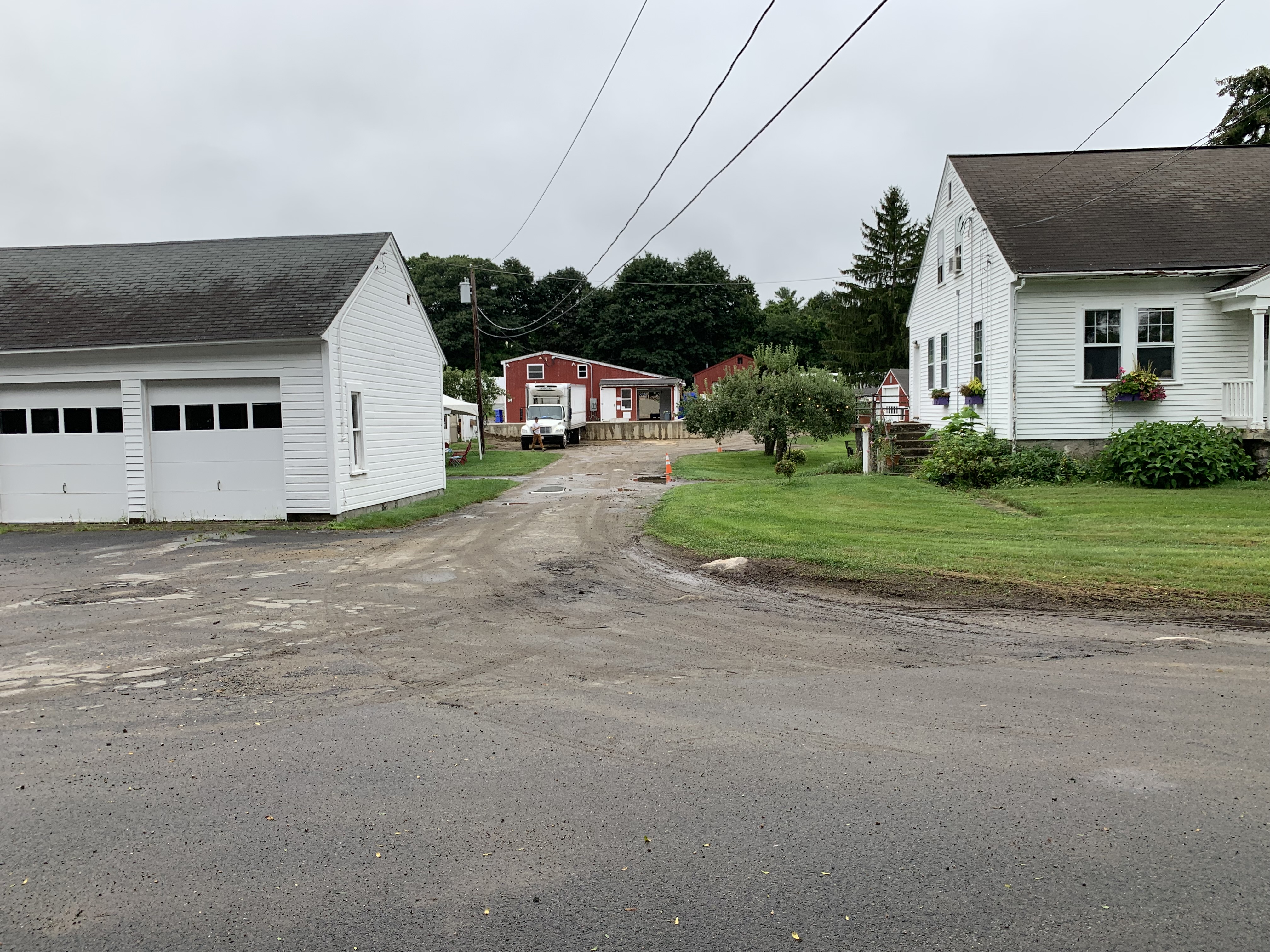 The food hub developed a couple of years ago with the realization that we have all the infrastructure to act more as a distributor, but the big mission is to support the farmers. When it comes to farmers selling their crops, farming is a very time consuming activity, to do their own sales and marketing and distribution is extremely costly and time consuming. That is where a third party comes in to take that burden off of them. We help connect farmers to reliable wholesale markets. We find the customers, pick up the product, and that they get a fair price for their goods. That is the role of distribution. Separately, Boston Food Hub buys produce from the farmer and sells it to wholesale customers, which financially supports the farmer. These are two different programs. One way to easily think of it is anything that is gleaned is donated, and anything that is purchased is sold. So the food hub financially supports the farmer because we pay them for the produce.
The food hub developed a couple of years ago with the realization that we have all the infrastructure to act more as a distributor, but the big mission is to support the farmers. When it comes to farmers selling their crops, farming is a very time consuming activity, to do their own sales and marketing and distribution is extremely costly and time consuming. That is where a third party comes in to take that burden off of them. We help connect farmers to reliable wholesale markets. We find the customers, pick up the product, and that they get a fair price for their goods. That is the role of distribution. Separately, Boston Food Hub buys produce from the farmer and sells it to wholesale customers, which financially supports the farmer. These are two different programs. One way to easily think of it is anything that is gleaned is donated, and anything that is purchased is sold. So the food hub financially supports the farmer because we pay them for the produce.
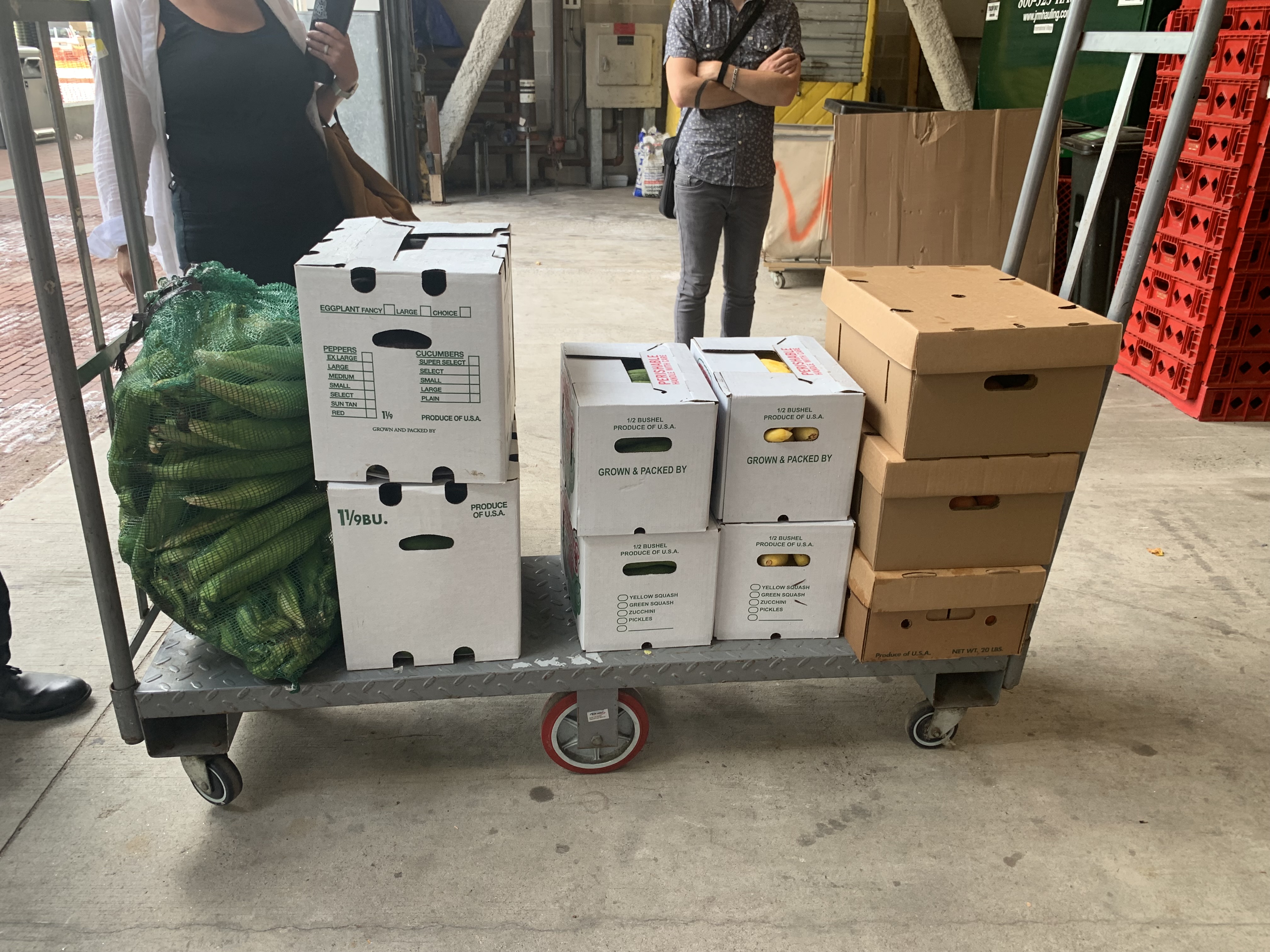 For a variety of reasons it is important to source locally. When you source food locally you are supporting the local economy and your neighbors by spending money within your own community. By supporting your local farms you are reducing development and keeping the agricultural spaces alive and preserving that farmland. We bought a farm this year that the landowners did not want to go into development in the town of Acton that is now protected forever.
For a variety of reasons it is important to source locally. When you source food locally you are supporting the local economy and your neighbors by spending money within your own community. By supporting your local farms you are reducing development and keeping the agricultural spaces alive and preserving that farmland. We bought a farm this year that the landowners did not want to go into development in the town of Acton that is now protected forever.
The organization has been very busy on hunger relief throughout the Covid pandemic. Right now we are really starting to build a customer base. We would love to have an opportunity to work with K-12 schools. We glean from farms throughout the state so access to supply is not an issue for us because we have incredible connections with farmers throughout the state. If you think of a school there are so many vendors. That is why you need an aggregator to act as one contact for maybe a hundred products. Food Hub is that at a local level. If a school says I want to buy xy and z, to be able to have a consolidator and work with all those farmers and distribute from one truck is necessary for a supply chain.
Check out the Boston Area Gleaners website for more information https://www.bostonareagleaners.org/.
Phone: (413) 253-3844
Email: info@massfarmtoschool.org